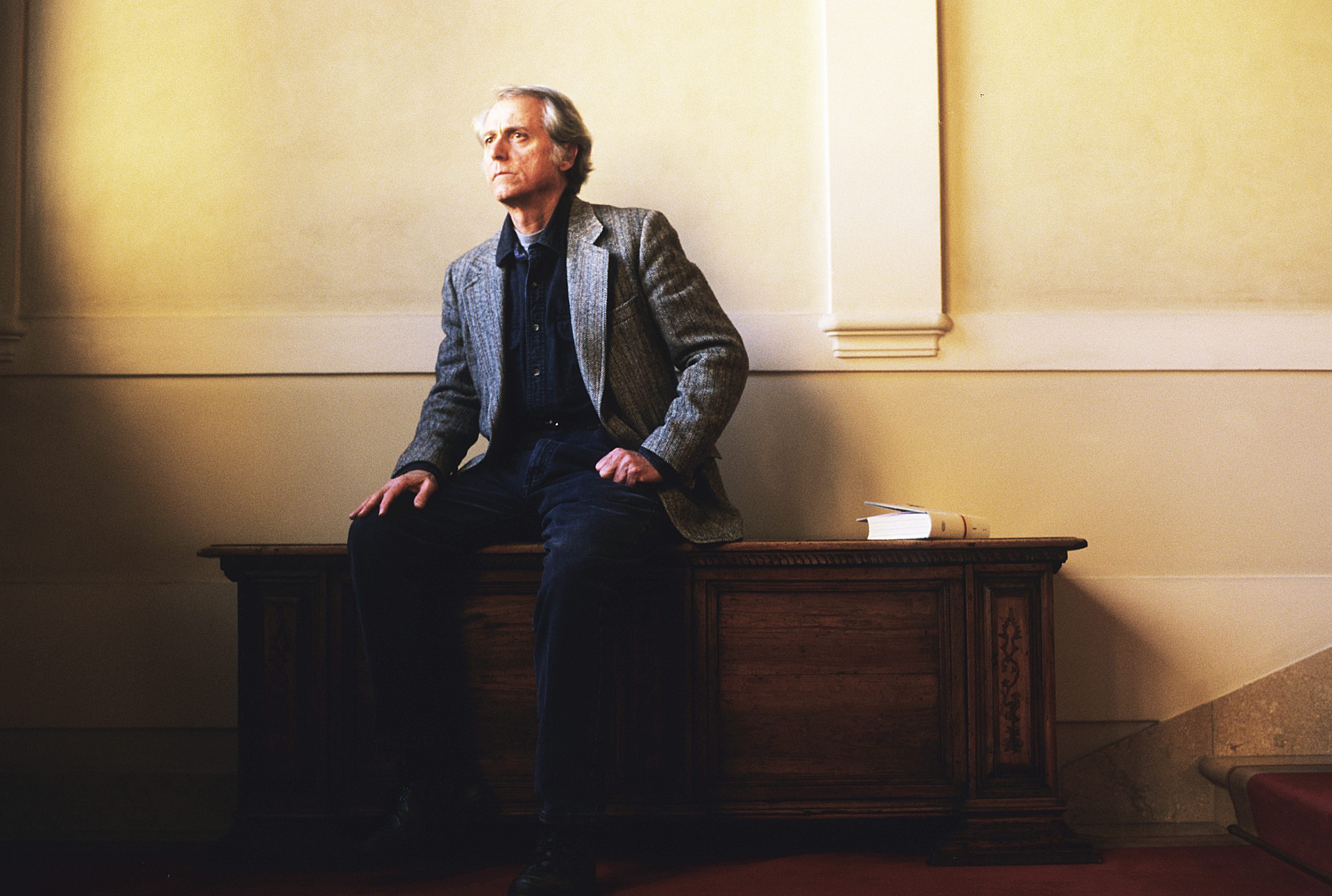DeLillo in Decline

The Silence, Don DeLillo, Scribner, 128 pages
There is a certain sort of author, who, once he has produced something great, churns out only inferior work, and often so much of it that even fans doubt whether his former powers were the real deal. It’s embarrassing to watch, but it happens all the time—some of the most talented writers have ruined their reputations by continuing to yap after they’ve told all they know.
In a recent instance of this phenomenon, Don DeLillo, long respected as a Great American Novelist, pumped out his 18th full-length effort, The Silence. The book (at 117 pages in double-spaced Courier, it cannot rightly be called a novel) is likely his last, a sorry send-off after a distinguished career. But perhaps appropriate. Eighty-three years old and childless, save for his literary awards, the old man finally fits his apocalyptic preoccupations.
Not much happens in The Silence. Some friends decide to watch the 2022 Super Bowl in Manhattan. They are two middle-aged married couples and one high-functioning autist. The husbands are ornery and addicted to screens. The wives are bookish and sex-starved. The autist, with whom DeLillo aligns himself most closely, is an Einstein expert. Their plans fall through when unexplained events zap the whole city’s power. A plane crashes. The TV conks out. Cell phones die. The book ends. Silence.
All this, in an earlier DeLillo novel, would open a labyrinthine investigation winding through the ways in which individuals attempt to maintain a sense of self once the domineering of digital technology is removed from their lives. Not here. DeLillo cuts out too early, but not before he rolls out a series of bizarre and increasingly incoherent conversations that lead nowhere. In the most memorable one, the autist and one of the wives repeat the word “cryptocurrencies” at each other for several pages. “Somewhere within all those syllables, something secret, covert, intimate,” DeLillo concludes.
This exercise might be entertaining as satire, but in his old age DeLillo has lost all taste for levity. And, not satisfied with his quintet’s performance, he inserts an authorial note, harping on his own deadly serious fears: “cyberattacks, digital intrusions, biological aggressions.”
“Do people experience memories of earlier conflicts, the spread of terrorism, the shaky video of someone approaching an embassy, a bomb vest strapped to his chest? Pray and die. War that we can see and feel,” he writes. “Is there a shred of nostalgia in these recollections?”
There’s more than a shred for DeLillo. The promotional campaign for The Silence advertised it as a sort of coronavirus novel, but that’s only half right. At its heart, the book is a lament for the time when our enemies were at least identifiably human. DeLillo built his reputation as the prophetic chronicler of conspirators, assassins, and terrorists—individuals, quantifiable, with alibis available in government documents and public libraries. And these individuals were always bound up into a vast movement of history, slipping indiscriminately into and out of its folds.
Post-social media and post-corona, that’s not the way the world really works anymore. There are no international signposts clearly marking freedom and slavery. Great men, if there are any, are only greatly petty. And everywhere, anonymous, urgent panics rule the day.
DeLillo should have seen this shift coming. After all, he predicted it. “The future belongs to crowds,” he wrote famously in his 1991 novel Mao II, a pronouncement kicking off a series of rhetorical set pieces all arguing the same thesis: In the age of mass communications, the only mind is that of the mob. DeLillo shows us Moonies marrying by the thousands, faithful Muslims wailing at the Ayatollah Khomeini’s funeral, and refugees crashing through a bombed-out Beirut, all moving as one body, instinctually.
None of these scenes hang together, but that’s the point. DeLillo operates beneath the level of storytelling, instead acting like a photojournalist, sweeping through crowds and allowing a semblance of order to emerge from the chaos. When he visits the right scene, his camerawork is breathtaking. Pafko at the Wall, his 1992 baseball novella, reads like a thriller. A few scenes in White Noise, where DeLillo swoops in on the anxieties dogging a certain professor of Hitler studies, flow like a stand-up comedian’s routine. Here and there, throughout the rest of his oeuvre, there are other glimmers: a fictional biography of Lee Harvey Oswald in Libra and a description of a condom store in Underworld, his most acclaimed novel.
But, for whatever reason, DeLillo declined steeply at the turn of the century, shortly after the publication of Underworld. Maybe he became exhausted. His big novel, after all, covered the entire Cold War—more than half a century of geopolitical conflict—and didn’t leave much room to say more. Or maybe he has just never been able to come to grips with the fact that his style and method of writing have no place outside the unipolar moment.
That’s a more likely explanation. DeLillo was made to shoot epics: Cold War dramas and end times pictures. Otherwise, he’s only as good as his material. And recently, material has been in short supply. The 2001 terror attacks happened, sure, but the resulting War on Terror has not been nearly so grand as past struggles. It’s no wonder that DeLillo’s own take on 9/11, Falling Man, understands the end of the end of history as a whimper. Too bad that doesn’t make for a good novel.
The same is true of The Silence. Over-reliance on technology may be terrifying, but it’s a commonplace terror. There’s nothing special or prophetic about another jeremiad. DeLillo isn’t even whimpering. He’s whining.
Nic Rowan is a staff writer for the Washington Examiner.
Comments